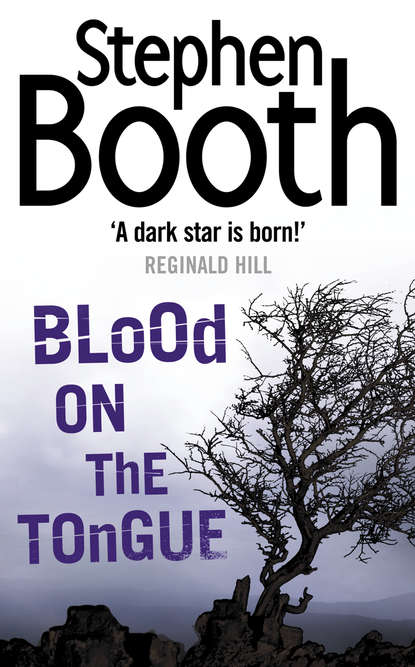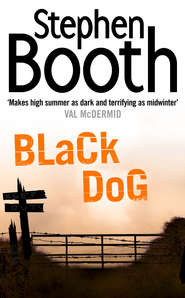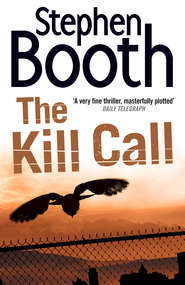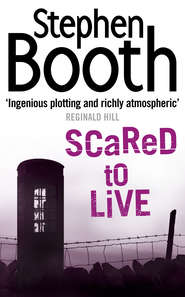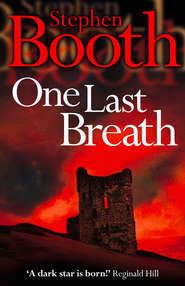По всем вопросам обращайтесь на: info@litportal.ru
(©) 2003-2024.
✖
Blood on the Tongue
Автор
Год написания книги
2019
Настройки чтения
Размер шрифта
Высота строк
Поля
The fear passed, as Marie’s brain lost its grasp on the thought and it went slipping away. The pictures were still in her mind, but the cold had drained all the colours from them. The dyes had melted and run, leaving washed-out greys and dark corners, bleeding the meaning from her memories. She could no longer capture the sounds and scents and tastes, no longer even keep hold of that one overwhelming emotion which had swollen so large that it filled her mind, but which now wriggled away from her grasp. Was it grief, anger, fear, shame? Or was it just the same unnameable longing that had haunted her all her life?
Marie had forgotten how she came to be lying in the snow, with the pain in her head and the blood in her mouth. But she knew there was a reason she ought to get up and go home. And she knew it had something to do with Sugar Uncle Victor. But the fingers of ice were squeezing out her consciousness, so that she would soon know nothing at all.
Marie was unaware of her bladder failing and releasing a warm stream that thawed a ragged patch in the snow. Soon, the physical sensations stopped altogether. As Marie’s skin froze and her blood thickened to an ooze, even the illusory sounds retreated beyond the reach of her senses. The footsteps faded and the voices fell silent, because there was no one left to hear them. Her heart slowed until its valves were left fluttering uselessly, pumping no blood through her body.
Finally, Marie Tennent existed only as a speck like a grain of sand floating in an oily residue of memories. Then they, too, swirled away into a hole in the back of her brain, and were gone.
For the fifth time, Ben Cooper turned to peer towards the corner of Hollowgate and High Street. The traffic lights had changed to green, but a queue of traffic was stuck in the middle of the junction.
‘Where’s the car?’ said Cooper, feeling for the radio in his pocket, wondering whether it was worth worsening the mood of the control-room operators at West Street with a complaint about somebody else’s slow response. ‘It should have been here by now.’
Eddie Kemp was wearing black wellies, with woollen socks rolled over the top of them, and his overcoat was long enough to have come back into fashion two or three times since he first bought it from the army surplus store, probably around 1975. Cooper thought he looked warm and comfortable. And no doubt his feet were dry.
‘We could flag down a taxi, I suppose,’ said Kemp. ‘Or we could catch a bus. Have you got the right fare on you?’
‘Shut up,’ said Cooper.
Down the road, traffic was still moving on High Street. Cars crawled through white flurries that drifted across their headlights. An old lady in fur-lined boots picked her way over the snow in the gutter. For a moment, Cooper thought of his own mother. He had promised himself he would talk to her tonight, and make sure that she understood he was serious about moving out of Bridge End Farm. He would call in to see her when he finally went off duty.
‘I’m not walking all the way up that hill,’ said Kemp. ‘It’s not safe in these conditions. I might slip and injure myself. Then I could sue you. I could take the police for thousands of pounds.’
Cooper wished he could distance himself from Kemp’s powerful smell, but he daren’t loosen his grip or shift from his eight-o’clock escort position at his prisoner’s left elbow.
‘Shut up,’ he said. ‘We’re waiting for the car.’
He was aware of customers coming out of the café now and then, the doorbell clanging behind them. No doubt each one stopped for a moment in the doorway, staring at the two men on the kerb. Cooper shifted his weight to maintain his grip. He felt the slush in his left shoe squelch as he put his foot down.
‘Maybe the car’s broken down,’ said Kemp. ‘Maybe it wouldn’t start. These cold mornings play hell with cheap batteries, you know.’
‘They’ll be here soon.’
On the far side of Hollowgate, shopkeepers were clearing the snow from the pavement in front of their shops, shovelling it into ugly heaps in the gutter. The beauty of snow vanished as soon as it was touched by the first footstep or the first spray of grit from a highways wagon. By daylight, it would be tarnished beyond recognition.
‘I have to tell you I’ve got a delicate respiratory system,’ said Kemp. ‘Very susceptible to the cold and damp, it is. I might need medical attention if I’m kept outside in these conditions too long.’
‘If you don’t keep quiet, I’m going to get annoyed.’
‘Bloody hell, what are you going to do? Shove a snowball down my neck?’
A pair of flashing blue lights lit up the front of the town hall in the market square, just past the High Street junction. Cooper and Kemp both looked towards the lights. It was an ambulance. The driver was struggling to make his way through the lines of crawling cars.
‘That’s clever,’ said Kemp. ‘Sending for the ambulance first, before you beat me up.’
‘Shut up,’ said Cooper.
‘If you took the cuffs off for a bit, I could use my mobile to phone the missus. She could get the sledge out and hitch up the dogs. They’re only corgis, but it’d be quicker than this performance.’
Behind them, somebody laughed. Cooper looked over his shoulder. Three men were standing in front of the window of the café. leaning on the plate glass, with their hands in the pockets of their anoraks and combat jackets. They wore heavy boots, a couple of them with steel toecaps, like the safety boots worn by builders in case they dropped bricks or scaffolding on their feet. Three pairs of eyes met Cooper’s, with challenging stares. Four white males, aged between twenty-five and forty-five. Could be in possession of baseball bats or similar weapons. Approach with caution.
Finally, Cooper’s radio crackled.
‘Sorry, DC Cooper,’ said the voice of the controller. ‘Your response unit has been delayed by a gridlock situation on Hulley Road. They’ll be with you as soon as possible, but they say it could be five minutes yet.’
One of the men leaning against the window began to form a snowball between his gloved fists, squeezing it into the shape of a hand grenade with short, hard slaps.
‘Damn,’ said Cooper.
Kemp turned his head and smiled. ‘Do you reckon we could go back inside and have another cup of tea?’ he said. ‘Only I think it’s starting to snow again. We could freeze to death out here.’
By morning, Marie Tennent’s body had stiffened into a foetal position and was covered in frost, like a supermarket chicken. Ice crystals had formed in the valves of her heart and in her blood vessels; her fingers and toes and the exposed parts of her face had turned white and brittle from frostbite.
Nothing had disturbed Marie’s body during the night – not even the mountain hare that had pattered across her legs and squatted on her shoulder to scratch at patches of its fur. The hare was still brown and ragged, instead of in its winter camouflage white. It defecated on Marie’s neck and left a scattering of fur, dead skin cells and dying fleas for the pathologist to find. For a long while afterwards, Marie lay waiting, just as she had waited in life.
Later in the morning, a patrolling Peak Park Ranger almost found Marie, but he stopped short of the summit when he saw more snow coming towards him in the blue-grey clouds rolling across Bleaklow Moor. He turned back to the shelter of the briefing centre in the valley, retracing his own footsteps, failing to notice the smaller tracks that ended suddenly a few yards up the hill.
When the fresh snowfall came, it quickly covered Marie’s body, gently smoothing her out and softening her outline. By the end of the afternoon, she was no more than a minor bump in the miles of unending whiteness that lay on the moors above the Eden Valley.
That night, the temperature dropped to minus sixteen on the exposed snowfields. Now there was no hurry for Marie to be found. She would keep.
2 (#ulink_f08b1da2-6095-56e6-9e5c-ab1175929c77)
Detective Sergeant Diane Fry knew she was going to die buried under an avalanche one day – an avalanche of pointless paperwork. It would be a tragic accident, resulting from the collapse of a single unstable box file under the weight of witness statements piled on top of it. The landslide would carry away her desk and swivel chair and smash them against the wall of the CID room like matchsticks. It would take days for the rescue teams to locate her body. When they did, she would be crushed beyond recognition, her bones flattened in the same way that the reports on her desk were even now pressing down on her brain.
The piles of paper reminded her of something. She turned her head and looked out of the window, squinting to see past the condensation that had streaked the panes. Oh yes. Snow. Outside, the stuff was piled as high and as white as the paperwork. She couldn’t decide which was worse.
Then she felt the touch of warm air. It came from the noisy fan heater that she had stolen from the scenes of crime department that morning before the SOCOs arrived for work. The paperwork was just about preferable. At least it meant she could stay in the warmth for a while. Only masochists and obsessives chose to wander the streets of Edendale on a morning like this. Ben Cooper, for example. No doubt Cooper was somewhere out there even now, conducting a one-man crusade to clean up crime, despite the icicles hanging off his ears.
Soon, scenes of crime officers would be scouring the building for their missing heater. Eventually, she would have to give it up, unless she could find somewhere to hide it when she heard them coming. You could always tell when the SOCOs were coming by the sound of their grumbling. But the heater was the only source of warmth in the room. Fry put a hand to the radiator on the wall. It was warm, but only faintly. It felt like a body that hadn’t quite cooled but had already gone into rigor mortis. No need to call in the pathologist for a verdict on that one. Dead for two hours, at least.
She sniffed. A whiff of sausages and tomato sauce trickled down the room and settled on a burglary file that lay open on her desk. It was the sort of smell that was responsible for turning the walls that strange shade of green and for killing the flies whose bodies had lain grilling for months inside the covers of the fluorescent lights.
‘Gavin,’ she said.
‘Mmm?’
‘Where are you?’
‘Mmm-mmph-mm.’
‘I know you’re there somewhere – I can smell you.’
A head appeared above a desk. It had sandy hair, a pink face, and dabs of tomato sauce on its lower lip. DC Gavin Murfin was the current bane of Diane Fry’s life – less temperamental than Ben Cooper, but far more prone to dripping curry sauce on the floor of her car. Murfin was overweight, too, and a man in his forties really ought to think about what he was doing to his heart.
‘I was having some breakfast, like,’ he said.
‘Can’t you do it in the canteen, Gavin?’
‘No.’





